Mindful eating doesn’t work if you eat any junk food. You have to be super strict otherwise it’s useless.”
The idea that mindful eating doesn’t work if you you eat junk food is a common sentiment, but I’m not 100% on board with it. I was just having a conversation with a client about this and figured you might get something out of it… hence this post.
If you’ve ever attempted to eat more mindfully – meaning becoming aware of your body’s sensations before, during, and after eating (like tuning into your hunger or fullness cues) – but have felt like:
1) it’s too hard OR
2) that the calorie count on the package is gonna be a better way to prevent you from overeating OR
3) it’ll never work for you unless you always eat squeaky “clean” (<– whatever that is, btw),
… then this post is for you.
First off, let me say: I, in no way, defend eating lots of junk food.
My entire purpose in life, in writing this blog, and in my books is to get you eating more real food.
But in the real world, where most of us live (an educated guess), we probably encounter food at the office or go to restaurants or maybe birthday parties or cocktail hour every so often.
I’m gonna wager you don’t stick to a 100% real food diet in all of those situations 100% of the time. I know I don’t!
The beauty of mindfulness, in whatever way you apply it, is that you practice taking a step back from your mental chatter or digital distractions to focus on the sensations in your body.
If you take a few moments during your day to check in with your hunger and fullness cues, guess what? You’re eating mindfully.
If you relish in the intense crunch and burst of tart-sweet juice when you bite into an apple, guess what? You’re eating mindfully.
If you savor that slice of artisan cheese, guess what? You’re eating mindfully.
If you nosh on a cookie at a party then decide it wasn’t all that good and decide not to have another…. You guessed it. You’re still eating mindfully.
My point is, mindful eating can take many forms.
It’s about making connections between the sensations in your body and what you’re eating, how you’re eating, and what’s driving you to keep eating or stop eating.
You might have some personal goals with mindful eating. Maybe you want to lose a few pounds, figure out what foods are making you bloated, or simply practice having some downtime when you eat.
Mindful Eating: Does it work even when you eat junk food?
If you’re working on health goals, certainly prioritizing real food is going to help. And sometimes restricting your food options, while allowing yourself to mindfully figure out what quantity your body needs, is a healthy part of the process (especially if you’re working on food sensitivities).
But to think that “mindful eating doesn’t count or doesn’t work if you eat junk food” is akin to giving up on eating healthy for the whole day because you “messed up” at lunch. (If you’ve ever declared a “cheat day”, you know exactly what I’m talking about.)
What you eat is besides the point.
The truth is, you can choose to eat mindfully anytime.
In my experience, it’s easier to eat mindfully when eating mostly real food because there aren’t additives designed to hijack your brain’s reward pathways (like MSG or artificial sweeteners).
Also, real foods aren’t as likely to be loaded with high glycemic carbohydrates or sugar that trigger a blood sugar roller coaster and hormonal cascade that drives even more cravings.
That said, I can’t think of a better time to apply mindful eating than when you’re eating junk food. It’s like the ultimate test.
There’s an upside to noticing how your throat feels sore when you drink a soda. That’s a form of mindful eating.
It’s ultimately a good thing to be aware of that trans fat slick on the roof of your mouth when you eat a doughnut and feel repulsed by it. That’s a form of mindful eating.
It’s useful to observe how having Doritos makes you want to keep eating the whole bag even when your stomach is telling you you’ve had enough. That’s a form of mindful eating.
It’s good to notice how you feel compelled to overeat when you’re out with friends and ordering a bunch of fried appetizers. That’s a form of mindful eating, too.
These are all fantastic and useful observations about how your body responds to different foods and situations.
Mindfully eating junk food is a great experiment.
You’re gathering information, making sense of it, and hopefully, using that new found knowledge to make choices about the foods that keep you feeling your best.
For me, I know certain junk foods can feel addictive, so I make a mindful choice to not have them in the house. Out of sight, out of mind.
But there are definitely some treats I keep on hand that I know I can eat mindfully and then put the rest away for another day (I’m looking at you, TJs Dark Chocolate Peanut Butter Cups). Now these aren’t exactly the worst of “junk foods” ingredient-wise, but they are a sugary treat nonetheless.
I know that all the times I’ve gone super strict and gotten all the treats out of the house, I actually feel compelled to binge on them when I find them at a later time. This recently happened when I stayed with some friends who keep a sparse pantry and few treats. After 4 days of zero chocolate, I finally went out to buy some, only to eat nearly half the bar!
Typically, I eat a small square and am completely satisfied. But because it had been unavailable, I actually ended up eating more chocolate because I had felt deprived in the previous days. My usual approach to eating mindfully had been thrown out of whack. I know wouldn’t have had that reaction if I’d had my usual chocolate morsels in the days leading up to this.
Nonetheless, I noticed the situation and made the realization that small treats on a regular basis is a better balance for me than “all or nothing.”
I know not everyone agrees with me.
I fully acknowledge that some people certainly fare better without any junk food around to “tempt” them, but part of me wonders if junk food would still have that power over them if there wasn’t the guilt associated with it or if they had a chance to practice mindful eating techniques, meaning observe how their body feels when they eat (or don’t eat) junk food.
Personally, after incorporating mindful eating into my life, junk food usually doesn’t have much power over me. I can try a bite of something and decide in the moment if it’s worth eating more of. Often, just a taste is sufficient.
The really icky junk foods – the ones loaded with chemical additives and flavors and trans fats – taste like chemicals to me or make my stomach feel bad and I simply make a choice not to have more.
My choice to not eat them is a mindful one, out of respect for my body, not an attempt to deprive myself or stay in my calorie limits or macros.
But without ever giving myself a chance to notice my body’s reaction to junk food, how would I know that? What would keep me from binging on chips? Or gorging on ice cream?
My challenge to you is to bring the practice of mindful eating with you wherever you go and with whatever you eat, whether you’re eating at a friend’s house, having an organic salad with homemade avocado dressing, having wine and cheese, or having fast food for dinner.
There are only positive outcomes when you pay attention to how your body responds to food – junk food, real food, or even junky-real food (Paleo brownies anyone?).
Before you go, I’d love to hear your thoughts.
- Do you think you can eat mindfully when eating junk food?
- Do you feel like some foods are addictive and therefore override your ability to eat mindfully?
- What’s been your experience?
Until next week,
Lily
PS – Need help applying mindful eating? This article helps explain my approach in step-by-step detail. And if you’re pregnant, both of my books lean heavily on mindful eating and discuss how this method works extremely well during this phase of life. In fact, research shows that pregnant women who incorporate mindful eating naturally eat less junk food.

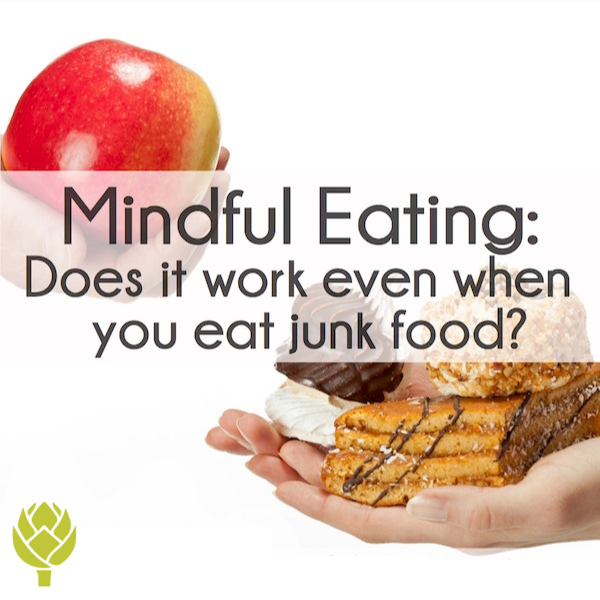

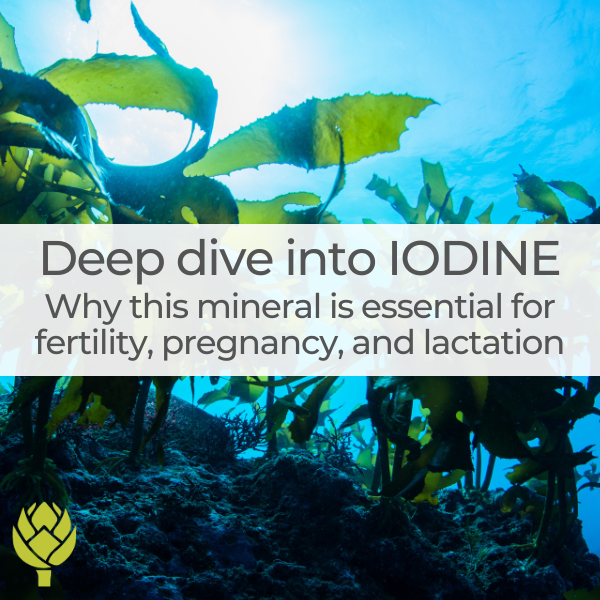
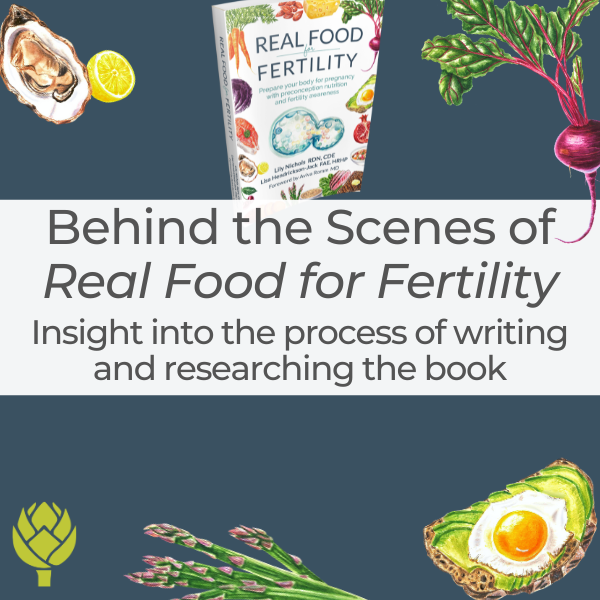
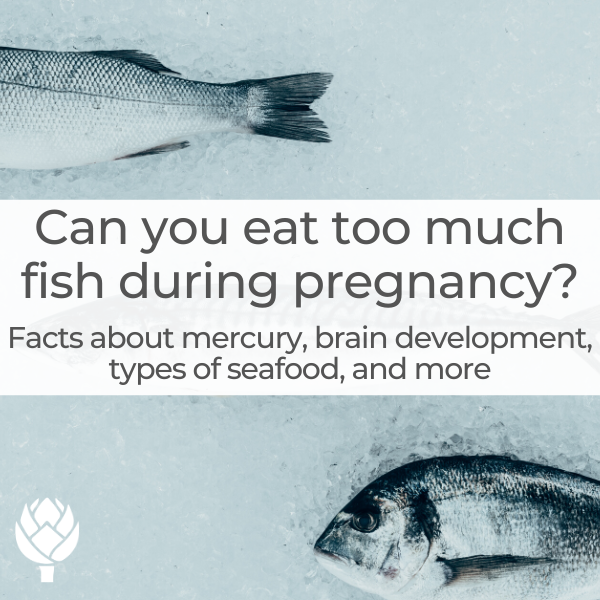
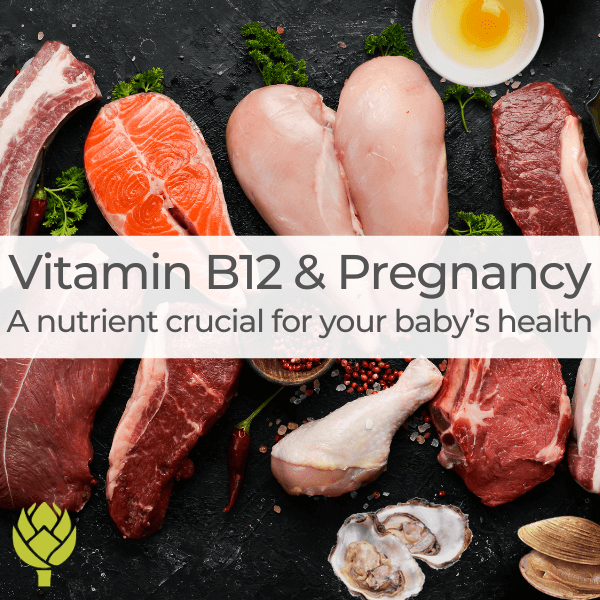



double chocolate milanos
“Danger, Will Robinson!”
Haha! We all have out kryptonite.
It is empowering to realize even when we have a bite or two or even a whole bowl of junk food we are able to increase our choice for healthier food next time if we are mindful. You explained this simply and beautifully!
Glad it resonated with you, Ruth.
I found this article reassuring as I have been on mindful eating for a few weeks and it’s fabulous. Today, being a little out of sorts from a party last night I really was craving potatoes, so I went and bought some fresh cup hot chips and a veggie burger. I waited until I got home, sat at the table and only ate half of what I usually would. I am now in touch with my body and I don’t feel guilty about what I ate, because it was mindful and a treat. Thank you again!
That’s great to hear!
I’ve tried many diets and lost weight but then put it back on again quiet a few times. I hate counting calories and or restricting my diet as it’s a pain and i feel like I’m missing out if there’s some what or completely unhealthy foods around.
I tend to be all or nothing on many things including eating so hoping mindful eating will take the pressure off and reduce guilt if I do eat some unhealthy foods and combined with moderate exercise improve my lifestyle hence my health.
I used to be part of a low carb sugar addiction support group online. Though they had some very useful nutrition info on the problems with junk food, they had a very firm belief that sugar addiction was physiological, like drug and alcohol addiction, and that once your brain dopamine pathways had been hijacked, you were an addict for life.
The problem with this view of sugar addiction was that it very quickly became extreme. At first you cut out all natural forms of sugar (including honey etc) and all refined flours and starches, because these quickly turn to pure glucose in your body. Then you cut out all artificial sweeteners/ sugar alternatives because the sweet taste triggers unbearable cravings for traditional sweets. Then you cut out dairy, because lactose causes sugar cravings. And all fruit, because anything that tastes remotely sweet will send you on a sugar binge. Then all legumes and grains, and even nuts. The sweetness of nuts is so mild, and yet for some people they would binge on them and then crave sugar. And then what do you do when you eat a capsicum or cherry tomato and enjoy the natural sweet taste of the vegetable? In the end, it was like living in fear of anything that wasn’t animal protiens or fats, or bitter watery vegetables!!!
That was too extreme for me and really felt like an eating disorder. I could last sugar free for a few months at a time, but would always go on crazy swings back to binge eating on sugar. And it was very stressful and mind-consuming.
Now I eat mostly low carb, and I’ve given myself permission to eat whatever sweet or junky food that I want to, and I don’t ban any whole foods like all fruit or all nuts. And my cravings? Not gone, but I feel safe and comfortable telling myself “I want chocolate now, but instead I’m eating my healthy breakfast, and I’ll have some later when the time is right”. I’m not scared of food anymore. I’m not tricking myself – I will have some chocolate or something else later when I feel like it. I try to avoid seed oils (canola, soy, corn etc) at all cost because I think they are like poison for the body and usually easily avoided, but generally, I think our bodies can handle a little bit of junk food. And if we’re eating mindfully and listening to how our body responds, it’s pretty easy to tell when we’ve eaten too much processed stuff and need to give it a rest and focus on whole foods more.
I appreciate your open-minded attitude in this article and that you’ve brought the topic of mindful eating to the table. I believe that mindful, intuitive eating is the most natural and harmless way for humans to eat/navigate their relationship with food. I would like to make a point that using words like “junk” and “real” to categorize or label foods can actually perpetuate the harmful stigma that diet culture thrives off. Instead, maybe you could think about approaching food more generally and recognize that no food is good or bad, junk or real. Every food has something different to offer someone. For example, Cheetos are not a junk food because if it’s something your body is craving, then your body needs it and you should honor that. “Junk food” implies that your body would be better off without the Cheetos; that they are useless to you. Just offering a different perspective! Thanks for reading 🙂